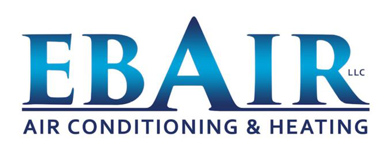
With ample maintenance, your air conditioner can run for 15 years or greater. But even the best maintained air conditioner will need to be replaced down the road.
When you’re getting started planning for air conditioning installation in East Bernard, we realize that the expense is number one on your list of questions. The bright side is that installing a new air conditioner could be more reasonable than you realize, due to rebates, our special offers and financing for qualified customers. You’ll also receive better energy efficiency, which will usually pay off over its life span through less expensive electricity bills.
Here’s what to expect when you’re getting a new air conditioner.
When to Replace Your Air Conditioner
Knowing when to repair or replace your air conditioner may be hard. Here’s what our pros recommend.
Replace
- Your air conditioner is past 10 years old. While some might run longer, most air conditioners run for around 15 years with annual maintenance. We advise getting ready for air conditioning replacement around the 10-year age. Even if you get a new one when it’s only a decade old, the U.S. Department of Energy says this swap could save you 20-40% on cooling bills.
- You’ve neglected routine maintenance for too long. Just like a car, your cooling system requires annual air conditioning maintenance. Overlooking this crucial service can result in diminished efficiency, more recurring repairs and even a reduced life span.
- Your air conditioner requires frequent or costly repairs. Needing air conditioning repair is often the outcome of overlooking service But as your air conditioner gets older it’s more likely to have a major problem. When repairs are higher than half the cost of a new air conditioner, we recommend getting a new one.
- Your residence is uncomfortable. If your residence feels too humid or you’re dealing with hot and cold spots in certain areas, your air conditioner might be struggling to keep up. This is a sign you need to replace it.
- Your cooling bills are costly. Your air conditioner gets less efficient as it gets older. Consequently, it may need to work more often or longer to keep your residence at your desired temperature. Newer air conditioners have the most up-to-date energy-efficient technology to keep your residence cool and utility bills low.
- Your air conditioner has R-22 refrigerant. If your air conditioner was purchased before 2010, there’s a high likelihood it uses Freon. Also called R-22, this refrigerant is no longer being manufactured due to its bad effects on the environment. You can keep using your air conditioner, but if it were to have a refrigerant leak, repairing that would be extremely expensive. This is due to the fact R-22 is only available in limited, recycled quantities.
Repair
- Your air conditioner is no more than 10 years old. If your air conditioner is newer, it’s smartest to repair it.
- Repairs aren’t common or reasonable. The best way to stop unanticipated repairs is to have annual work scheduled. But when repairs are only needed intermittently or are inexpensive, repair your air conditioner.
- Your air conditioner is covered by a warranty. Most air conditioners are accompanied by a 5- to 10-year limited warranty that usually covers the compressor. Your exact warranty length is determined by your manufacturer, but it gives valuable protection in the event of a huge failure. If your air conditioner is covered by warranty, we suggest fixing it.
General Estimate of Air Conditioner Cost
Many homeowners spend around $4,631 on a new air conditioner, per national averages compiled by HomeGuide. Air conditioner cost averages often range from $3,350 to $5,912, but your precise cost {might|could|may] be lower or higher.
There are several details that affect your total cost, such as:
- The air conditioner model you install, since more energy-efficient ones are higher priced.
- The size you need.
- If you need to put in new ductwork, which can happen if your ductwork is aging or inefficient.
We give free estimates at E.B. Air so you can be sure you’re getting a fantastic deal. And with our complete range of air conditioners, there’s an energy-efficient model that fits just about any budget.
Air Conditioner Sizing
Air conditioner size is crucial. A system that’s too little won’t be able to keep your house cool. And one that’s too big might turn on and off too often, or short cycle. This action can drive up your cooling expenses and wear your air conditioner out prematurely. This may also create temperature variability and make your house feel less cool.
At E.B. Air, our techs have many years of experience in properly sizing and installing the right air conditioner for your house. The size you need depends on how large your residence is, in addition to a few other things. Some of the most typical sizes include:
- 2 ton, which cools up to 1,000 square feet
- 3 ton, which cools up to 1,600 square feet
- 4 ton, which cools up to 1,900 square feet
- 5 ton, which cools more than 2,000 square feet
Other things that can influence air conditioner size are:
- The weather in East Bernard.
- Ductwork quality and age.
- How many windows your house has and the style, because big or picture windows can be more inefficient.
- If your house gets more sun or shade.
- Insulation quality and thickness.
- How many people are in your family.
SEER Ratings
Your air conditioner’s efficiency is tied to its SEER, or Seasonal Energy Efficiency Rating. This ranking measures how well it transforms electricity to create cooling. The greater the ranking, the more efficient the air conditioner is.
When you’re installing a new air conditioner, it’s crucial to be aware:
- Old air conditioners are rated around 8-9 SEER.
- Updated air conditioners start at 13 SEER. Ones installed in the southwest and southeast must be at least 14 SEER due to U.S. Department of Energy requirements. As of 2017, these SEER rating requirements have saved homeowners trillions of dollars.
- ENERGY STAR®-certified air conditioners begin at 14.5 SEER.
- Higher SEER-rated air conditioners have extra features to help you save more. These features may include variable-speed cooling. Instead of operating at full speed all the time, these air conditioners can adjust blower speeds customized for your cooling preferences. This leads to quieter and more energy-efficient cooling. While an air conditioner with a better SEER rating is typically pricier, it could be eligible for more rebates. And the energy savings over its lifetime might help it pay for itself.
Kickstart Your Air Conditioning Installation with E.B. Air Today
When you’re researching air conditioning replacement, the company who installs it is just as critical as the model you select. E.B. Air is one of the number one names for air conditioning installation in East Bernard. From helping you select the right solution for your residence to going over financing options to professional installation, partnering with us is a breeze. Call us at 979-335-4262 to begin today!
